 Lou Lenart. US Marine Corps/ Creative Commons Attribution-Share Alike 4.0 International license.
Lou Lenart. US Marine Corps/ Creative Commons Attribution-Share Alike 4.0 International license. This month marks eight years since the passing of one of the most important airmen in the history of Israel and the United States Marine Corps, Captain Lou Lenart. He was literally the first fighter pilot in the Israeli Air Force, and his first mission in defense of Israel was a crucial victory in Israel’s early history.
When he passed away in Ra’anana on July 20, 2015 at age 94, Lenart’s funeral at Kefar Nachman Cemetery was attended by many high-ranking officers of the Israeli Air Force and U.S. Marine Corps. During the celebrations surrounding Israel’s 75th anniversary in May, there was a commemoration ceremony to honor Lenart hosted by the Office of the Israel Consulate General in Los Angeles. It was one of many events surrounding the Israel’s 75th anniversary.
So on the eighth anniversary of his passing, the Journal recognizes Lenart’s story from Israel’s early history that is deserving of detailed recognition.
The event commemorating Lenart took place on a dreary morning on May 22 at The Proud Bird Food Bazaar & Events Center, a museum and restaurant about three football fields south of Los Angeles International Airport (LAX). Visitors from the parking lot are greeted by a monument to the Tuskegee Airmen, featuring one of their red-tail planes. And right next to it is a navy blue Corsair FG-1D plane in commemoration of Captain Lenart.
Dr. Hillel Newman, the Consul General of Israel in Los Angeles, opened the ceremony.
“Lou Lenart is an icon and a hero,” Newman said. “In Israel, Lou bonded his life with Israel … Lou was a true value-orientated person who was willing to sacrifice his life for Israel, understanding the perilous situation of Israel hanging on a thread.”
“Lou was a true value-orientated person who was willing to sacrifice his life for Israel, understanding the perilous situation of Israel hanging on a thread.”- Dr. Hillel Newman
Dr. Newman also mentioned the Nancy Spielberg-produced documentary “Above and Beyond,” which covered the efforts by the pilots who defended Israel in its first air battles as a new state.
Lenart was born in Hungary on April 24, 1921. A decade later, Lenart and his family immigrated to Wilkes-Barre, Pennsylvania, about 100 miles north of Philadelphia. There, he experienced antisemitism from the children of Polish miners. Even after high school, it didn’t end.
In a written statement read at the commemoration event, Lenart’s widow Rachel Nir shared a story from Lenart’s enlistment experience. “
Lou had a humiliating experience at the Marine’s recruiting base,” Nir wrote. “When the officer there looked at his enlistment papers, recognizing that the person standing in front of him was Jewish, he looked up at Lou and asked, ‘can you make it?’ Lou didn’t hesitate for a moment and answered, ‘if you can make it, I can make it.’ His family that remained in Europe did not survive the Holocaust. These experiences strengthened his courage and motivated him to make efforts for a different future, a good future for an enlightened world, as well as for the Jews. Lou was grateful to the United States of America for offering his family a refuge and defense from antisemitic persecution, as well as for granting him human rights and a chance to live as a free man. He was enormously proud to serve in the United States Marine Corps, which gave him a chance to integrate into the United States and to fight the forces of darkness.”
At the time, the United States Military was building thousands of aircrafts, but there were not enough pilots to fly them. After the service academy and college graduates were selected for pilot training, there was still a desperate need for more. So anyone who could pass the physical and mental tests got selected to take classes at colleges and universities to begin pilot training. Lenart, to his amazement, was selected. Whenever he recounted his early military career to audiences, Lenart would often remark about how as a Hungarian Jew, he couldn’t have served in the Hungarian Army, but the United States Marine Corps welcomed him.
Lenart would do his training at Marine Corps Air Station El Toro in Orange County. It was a precarious assignment, with an estimated one Navy or Marine Corps pilot dying every day. Lenart almost suffered the same fate. During his training, Lenhart survived a low-altitude mid-air collision and miraculously only broke both of his legs. Although the doctors said he would never fly again, within a year, Lenart was piloting missions over Japan, including the Battle of Okinawa.
Also speaking in honor of Lenart at the event was Israeli Air Force Brigadier General Asaf Vardi, Israeli Deputy Defense attaché and Air Force attaché to the United States. Vardi spoke of Lenart’s heroics in the post-World War II years — a time when Israel was just gaining statehood.
“When Israel declared its independence on May 14th, 1948, the single combat squadron of the Israeli Air Force consisted of only four Czech versions of the German Messerschmitt [aircraft],” Vardi said. “On May 29, 1948, only two weeks after the establishment of Israel, a large Egyptian military advanced to within 16 miles of Tel Aviv. Israel decided to gamble its entire combat Air Force in an attack on the advancing Egyptian convoys. At 7:45 a.m. exactly, the Messerschmitt planes of Squadron 101 took off for its first operational mission. The pilots attacked the Egyptian forces and stopped them at the Ashdod Bridge. The stunned Egyptian troops, who had been assured that the Israelis had no aircraft, stopped their advance and battled against the heroic Israeli ground forces. They eventually retreated and it was then that the young state of Israel declared to its enemies, ‘Enough. You won’t be going further than this point.’ As the most experienced pilot in the squadron, Lenart led the mission backed by Moddy Alon, [future Israeli President Ezer Weitzman] and Eddie Cohen; Cohen died during the attack. That attack led to news reports hailing Lenart as ‘the man who saved Tel Aviv.’ This was the first time that fighter airplanes flown by Jewish pilots took off from the ground of the new young state of Israel.”
Lenart would later describe the battle to the Israel Air Force Journal as “the most important event” in his life and that he survived World War II so he “could lead this mission.”
Lenart would later describe the battle to the Israel Air Force Journal as “the most important event” in his life and that he survived World War II so he “could lead this mission.”
While working as a commercial pilot for El Al in 1951, Lenart was summoned to serve Israel in a covert mission for the Mossad. For six months, Lenart flew passenger planes transporting persecuted Iraqi Jews to Israel under false identities, all while repeatedly risking his own life to fulfill the mission.
Lenart and the 4,500 other volunteers from 58 different countries came to be known as the “Machalniks” — Machal being short for “Mitnadvei Hutz LaAretz,” meaning “volunteers from outside the land.” These non-Israeli volunteers were crucial to Israel’s victory over the six invading Arab armies in the 1948 War of Independence.
“As a young pilot in the Israeli Air Force, I was inspired by legendary figures like Lou Lenart,” Vardi said. “For me, it was a great honor years later to command Squadron 101 myself, the very same squadron in which Lou served so heroically. Every morning when I entered my office, I would look at Lou’s flight jacket, which he personally donated to the unit on its 60th anniversary. Seeing his jacket hanging there. I would often think that even though we are not flying Messerschmitts anymore, the spirit we inherited from him still drives us forward.”
The final speaker was Four-Star General Robert Magnus, United States Marine Corps (retired). Not only is General Magnus the highest-ranking Jewish U.S. Marine of all time, he was also Lenart’s best man at his wedding to Rachel Nir. After sharing some personal stories of his friendship and Marine Corps brotherhood with Lenart, Magnus spoke in detail about just how daring and risky it was for Lenart and his fellow Machalniks to literally assemble an Israeli Air Force during the end of the British Mandate.
“In 1947, Lou volunteered to join Haganah, the Jewish Defense Organization, after a call from a fellow named Al Schwimmer,” General Magnus told the crowd. “Al was a California engineer who had done very well during the war, but he also was one of the people that were breaking the British blockade by helping orchestrate the illegal smuggling of not only aircraft and parts, but people to break the British blockade in Palestine and to be able to create an air arm. Aircrafts were smuggled from wartime Europe, the Avia S-199, which is a Czech knockoff version of the Messerschmitt that the Nazis had made, as well as aircrafts that came from the United States. They were also evading the blockade in various ways…They could not fly the Messerschmitts back to Palestine for one pretty simple reason: It couldn’t carry enough fuel. You’d have to stop too many times along the way, each time running the risk of being captured by the British who had spies all over the place because they were well aware of what the Jewish organizations were trying to do. The key to these aircraft was as much the ground crews as it was the aircraft. Somebody had to know how to fix them. And in the case of these four Messerschmitts, they were put in crates in Czechoslovakia and they were smuggled in transport aircraft into Palestine. And then you had to have somebody on the ground that knew how to put ’em together. Now this isn’t not in the days when you have digital textbooks where it can tell you the parts. So these mechanics, many of whom were not Sabras — they were not born in Israel. They were trained in World War II, but they were not trained on Messerschmitts. But they figured out how to put these aircraft together after they were smuggled into Palestine.”
As General Magnus continued speaking, a special sight appeared outside a window overlooking LAX. An El Al plane taxiing for takeoff could be seen slowly rolling to its take-off position. Of course it was a coincidence, but the moment felt as if the spirit of Lenart was looking on and saluting General Magnus as he spoke his praises.
“Lou was a man who in many ways reminded of me, of Marquis La Fayette, a hero of two countries,” General Magnus said. “Why would offer his life in order to protect values and people in a land that was not his? Well, it’s about principles. It’s about faith, and it’s more than just religion. It’s about doing the right thing.”







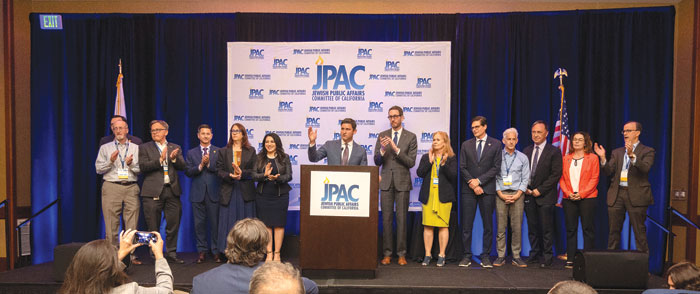

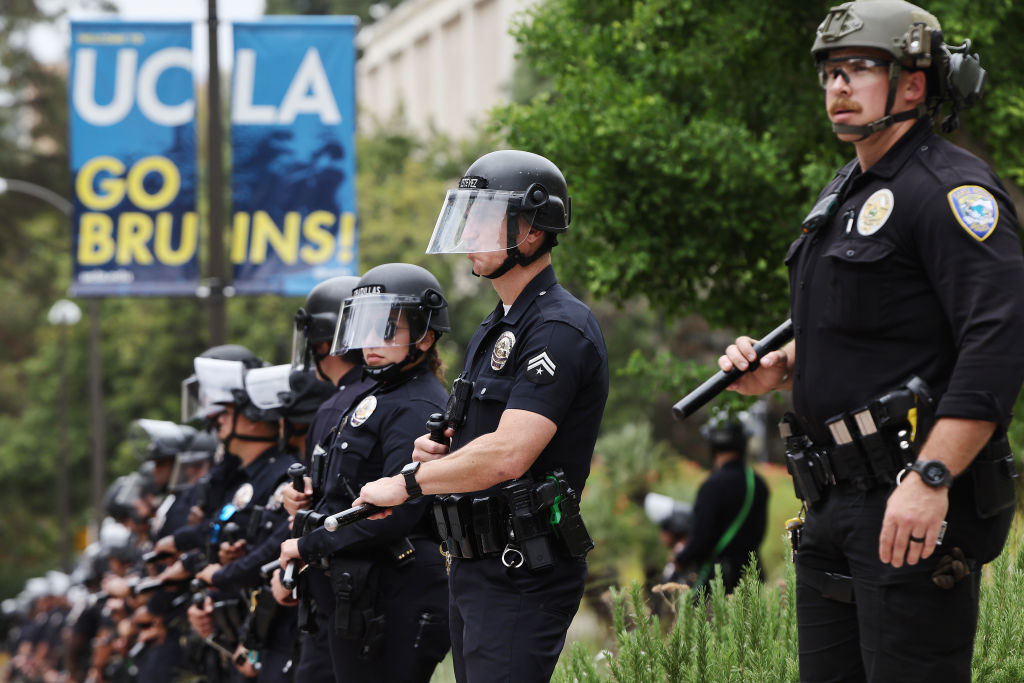


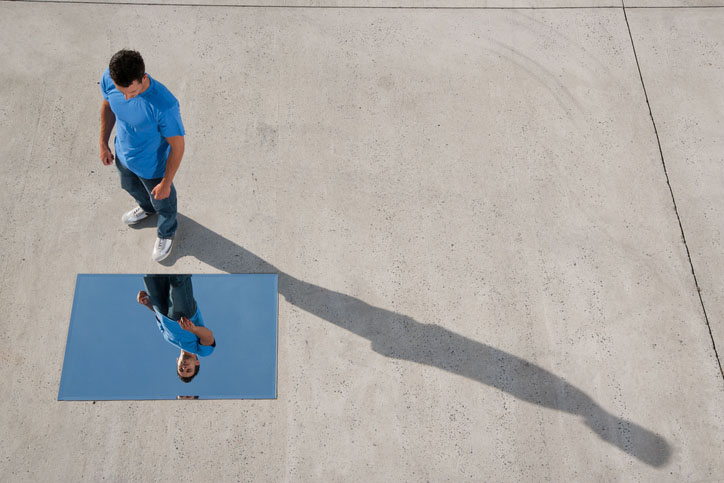
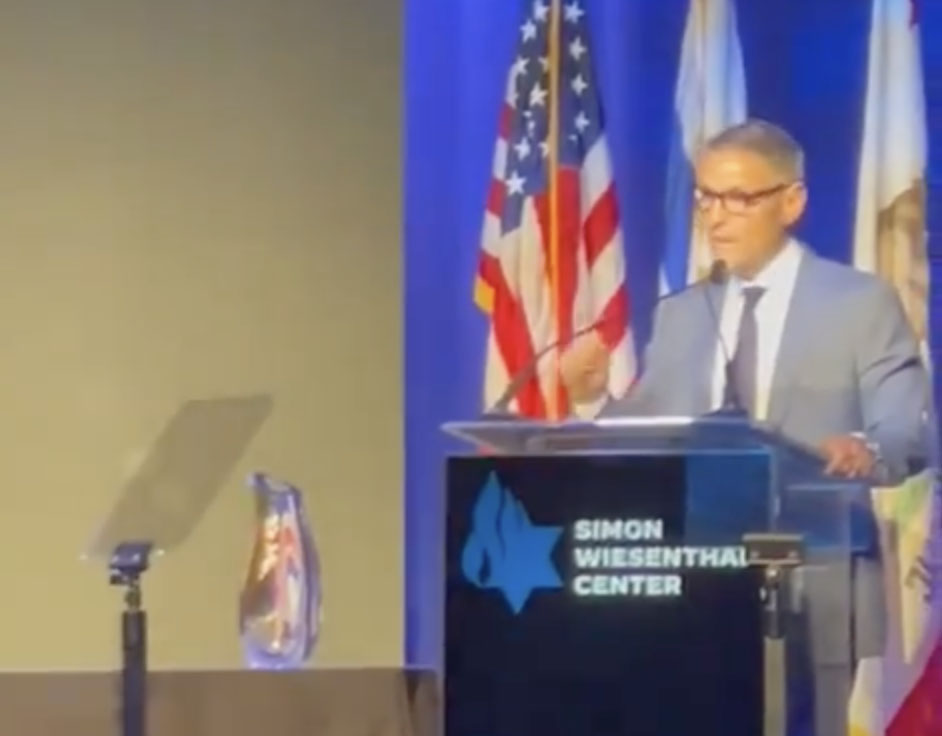

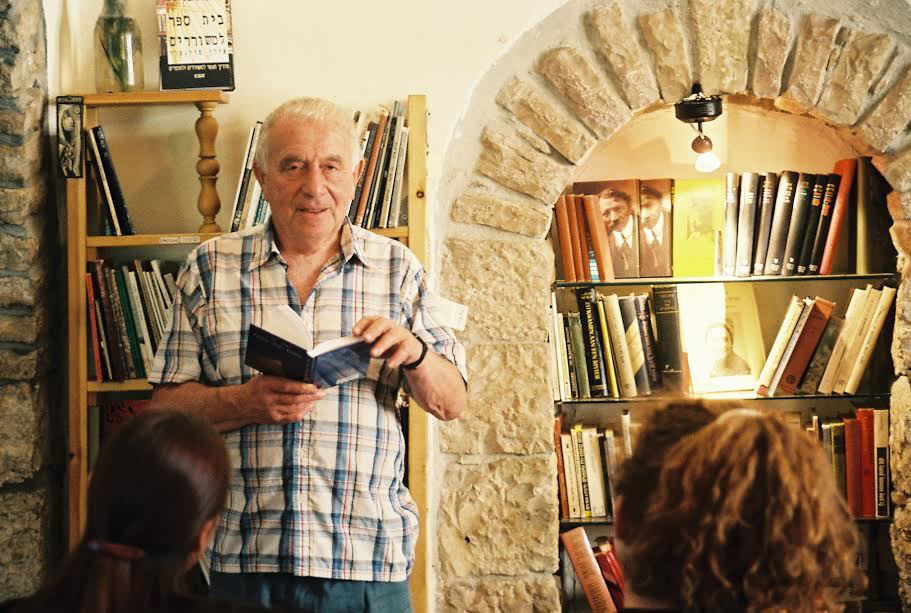






 More news and opinions than at a Shabbat dinner, right in your inbox.
More news and opinions than at a Shabbat dinner, right in your inbox.